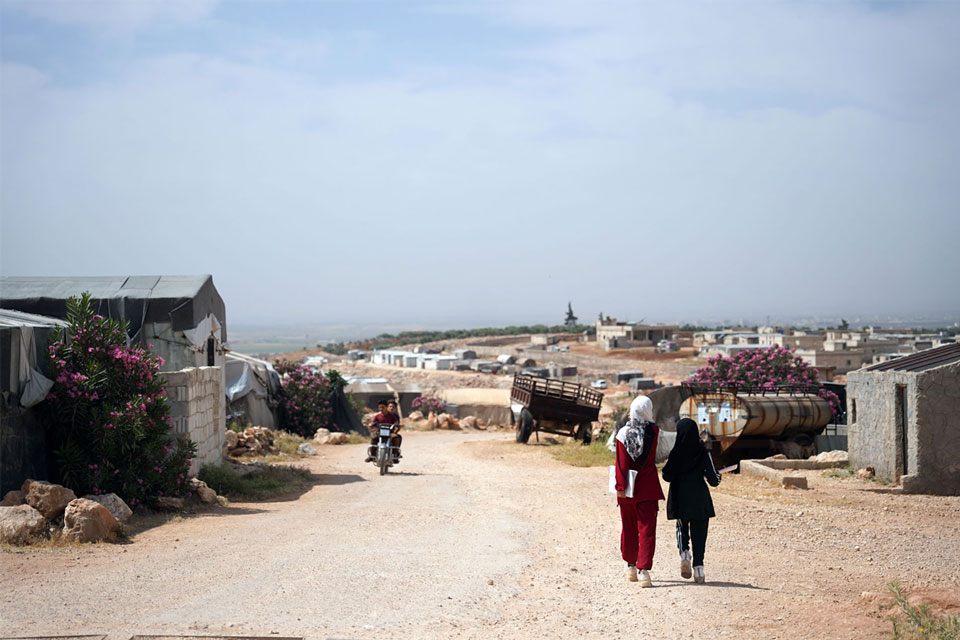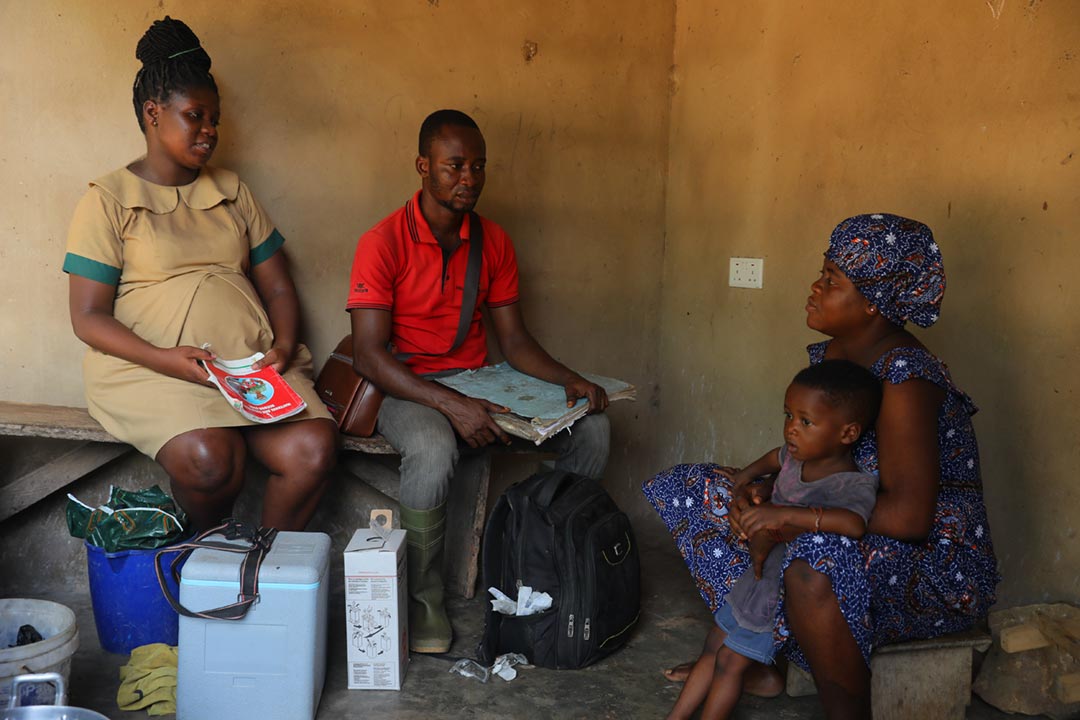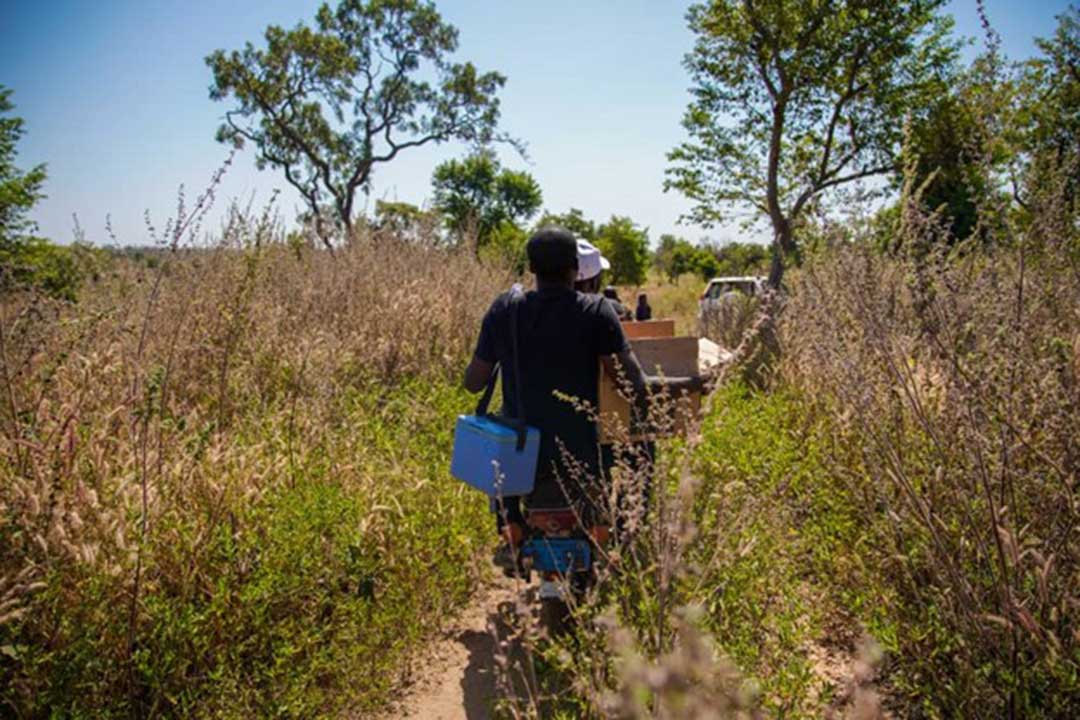MVIP update – 1 million doses administered, Kenya 1st anniversary, cooperation for vaccine access
Kenya marked its 1st anniversary of the launch of the pilot in September, with more than 128,000 children reached with vaccine, and one country health official expressing “a great sense of pride” in being part of the effort to protect children from malaria.
- 22 December 2020
- 5 min read
- by WHO
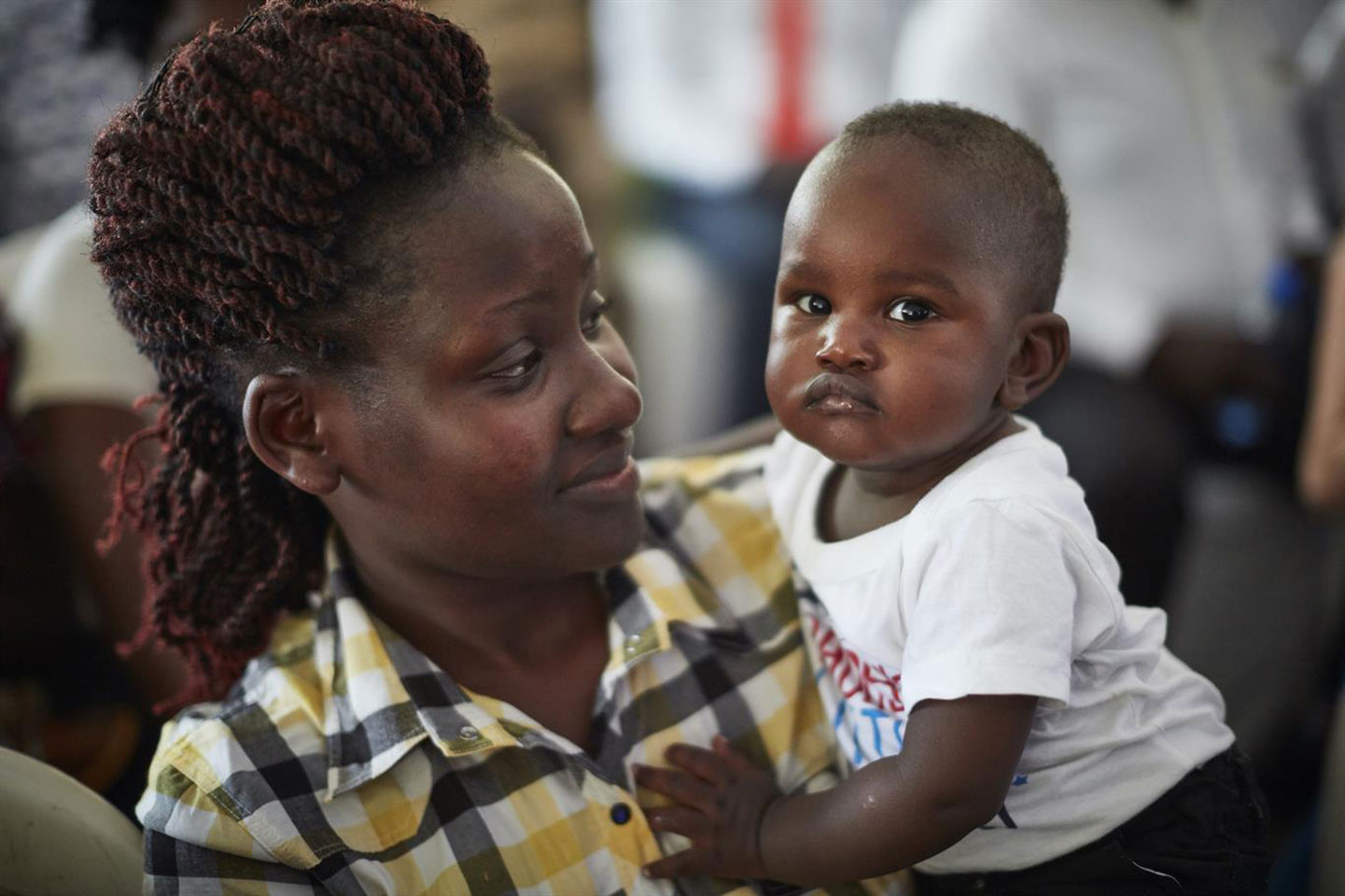
More than one year on across the pilot countries of Ghana, Kenya and Malawi, more than 1 million doses of the RTS,S/AS01 malaria vaccine have been administered, and an estimated 480,000 children have received their first dose of vaccine in childhood vaccination and should benefit from this additional malaria prevention.
Kenya marked its 1st anniversary of the launch of the pilot in September, with more than 128,000 children reached with the vaccine, and one country health official expressing “a great sense of pride” in being part of the effort to protect children from malaria.
Malaria vaccination is continuing in all participating countries without major disruptions and there is good uptake of the vaccine, despite the challenges posed by the COVID-19 pandemic. The evaluation of the pilot introduction continues, and accrued safety data is reassuring.
“The numbers of children reached in this relatively short period are encouraging and indicate good community acceptance of the malaria vaccine. The pilots are helping us to understand whether children can be reached with the 4-dose regimen, the impact on severe malaria and on lives saved, and the vaccine safety in routine use. This information will inform WHO recommendations for broader use of the vaccine,” says Dr Mary Hamel, WHO lead for the programme.
Vaccine access following the pilots, should the malaria vaccine be recommended for wider use, continues to be a priority for WHO and global health partners. Work continues to find a mechanism to support uninterrupted and long-term access.
Stakeholder planning for long-term vaccine access officially began at a WHO-convened meeting of malaria vaccine stakeholders, which included malaria, immunization and child-health specialists in October 2019, where WHO Director-General Dr Tedros Adhanom Ghebreyesus urged the group, by video message, to “start thinking now” about long-term access.
Have you read?
“There is a critical need for new tools to get us back on track – like the RTS,S vaccine. Waiting for results will slow us down and delay scale up in the countries that need it most,” said Dr Tedros.
“Half of childhood deaths in the world occur in Africa. To reduce child mortality, it is imperative that we look to interventions that are targeted to preventing deaths in African children,” said the late Dr Peter Salama, in his opening remarks as the chair of the meeting, emphasizing that malaria remains a primary cause of child death in Africa. Dr Salama was one of WHO’s most senior “health for all” leaders at the time.
Dr Salama called the malaria vaccine “pro-poor, pro-equity and a tool with a developed delivery system.” The RTS,S/AS01 vaccine provides an additional level of protection that, in combination with other malaria control tools, could change the trajectory of child survival in high-burden areas, particularly in light of the high coverage and reach of vaccination, he explained.
Partner content

This article was first published by the World Health Organization on 15 November 2020.
Kenya recognizes malaria vaccine potential
A year ago, on 13 September, the Kenya Ministry of Health launched the malaria vaccine in Homa Bay County, a high-burden area.
Kenya Ministry of Health officials welcomed the new tool at the time, noting that the 40% additional reduction in malaria cases achieved through vaccination, on top of protection provided by other proven disease-cutting measures, would be a welcome contribution to improve health and reduce burden on health facilities.
In a news commentary to mark the anniversary, Siaya county health director Dr Ken Oruenjo says: “We see real potential to significantly reduce malaria infections and deaths with the addition of the malaria vaccine to the toolkit of proven malaria control measures.”
“We also believe in our track record with childhood immunization, and the malaria vaccine, RTS,S, offers hope. It is the first and only vaccine to significantly reduce malaria in African children. The vaccine also reduces cases of severe malaria and related hospital admissions,” he adds.
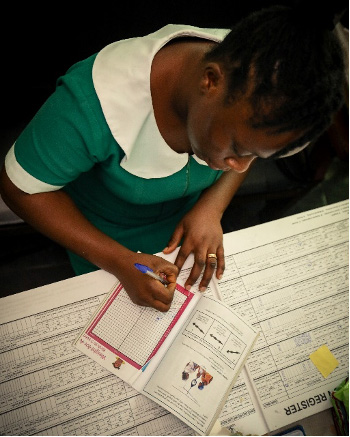
MVIP during COVID-19
Malaria vaccine uptake in country-led phased introduction continues to be generally stable in vaccinating areas in the context of COVID-19.
The malaria vaccine is being introduced in areas where children are at high risk of illness and death from malaria. In these areas as much as 60% of childhood outpatient health facility visits are due to malaria. The RTS,S vaccine reduces malaria cases in children, including cases of severe malaria, related hospital admissions and the need for blood transfusions, all of which can add stress to health systems.
“The disruption in access to essential health services can result in increased illness and death from common childhood diseases, including malaria,” says Dr Hamel. “This is why WHO recommends that essential health services remain available during the COVID-19 pandemic.”
“WHO is working closely with the ministries of health and in-country partners to anticipate and mitigate potential risks to the vaccine pilots, including those arising from the COVID-19 pandemic. By planning ahead, the EPI programmes have been able to maintain vaccine delivery and the evaluation partners have successfully continued the pilot evaluation with minimal disruptions,” she says.

